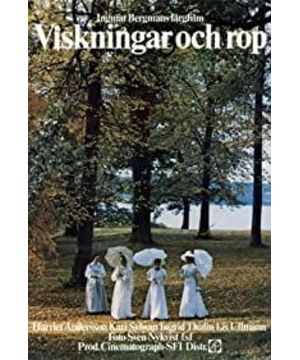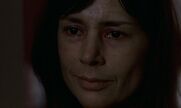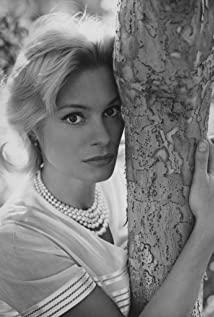Therefore, the repeated close-up of a woman's expression that gradually turns red, accompanied by a whispering voice, actually includes the elements of blood, time, and pain. And only the close-up of the last maid, there are no whispers - only she is willing to stay in the room at the end to accompany the dead Angrass.
The cry is the struggle and the wailing. When Angrath first cried out "can someone help me" after breathing hard because of his illness, the shouting was always accompanied by the ticking of clocks in the background. And all the shouting was useless. Carlin's intimacy with Maria was only temporary, no matter how real she was moaning at the time; and the reason for her moaning was that she couldn't control herself, and under the wash of time, nothing had power and meaning.
The film ends with a warm and vibrant green (instead of red for blood): Anglath's diary records the three sisters hanging out. At that moment, it was as if they had all traveled through time and returned to the time when nothing rotted.
The footage of the movie is very distinctive. Many close-ups of people's expressions capture the real cowardice and fear behind people's hypocrisy. In the scene where the doctor talks to Maria in front of the mirror, the change of Maria's expression in the mirror and the sudden insertion of the doctor's expression after that are very beautiful. In order to echo the close-up of the red gradient expression mentioned earlier, the interior walls of the entire house are red-in this hell-like room, several women are struggling to varying degrees, and many important conflict bridges are basically It happened against the background of the wall sign in its color.
It is worth mentioning that the maid Anna in the film seems to be the image of an angel. Her dress, her expression, and her care for Angrath are unlike any other in the entire film. But she was desperate in the end, and she only looked for the green green in Angras's diary, that is, in the past. The narrative of the film is very particular, interspersed with narrative, and the structure is clear; and the philosophical meaning of the language is already very strong. While people are struggling, they are constantly looking back and questioning their souls, or questioning the world outwards.
View more about Cries & Whispers reviews











